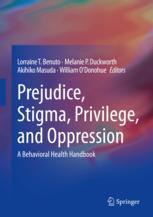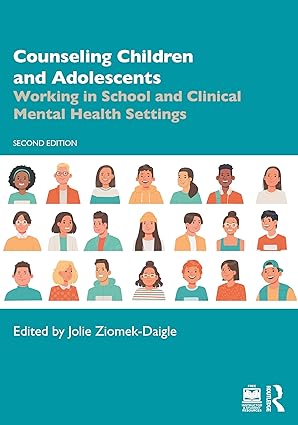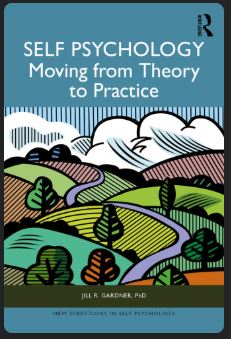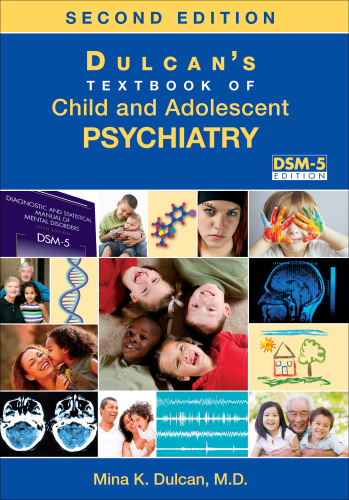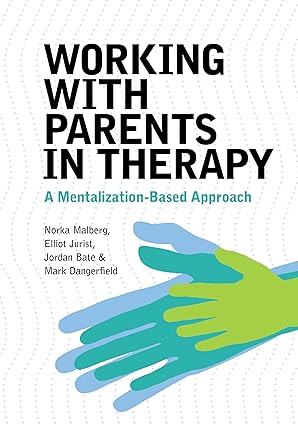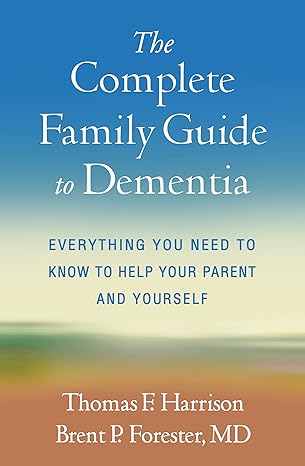According the Merriam-Webster dictionary (n.d.- a), prejudice is defined as: “Injury or damage resulting from some judgment or action of another in disregard of one’s rights preconceived judgment or opinion; an adverse opinion or lean- ing formed without just grounds or before suffi- cient knowledge; an instance of such judgment or opinion; an irrational attitude of hostility directed against an individual, a group, a race, or their supposed characteristics.” Conversely, per the Merriam-Webster dictionary (n.d.-b), discrimina- tion is defined as: “the act, practice, or an instance of discriminating categorically rather than indi- vidually; the act of making or perceiving a differ- ence.” Both prejudice and discrimination are often viewed as repercussions or elements of the isms (e.g., racism, sexism). Harrell (2000; pp. 43) defined an ism as, “A system of dominance, power, and privilege based on [racial] group des- ignations; rooted in the historical oppression of a group defined or perceived by dominant-group members as inferior, deviant, or undesirable; and occurring in circumstances where members of the dominant group create or accept their societal privilege by maintaining structures, ideology, values, and behavior that have the intent or effect of leaving non-dominant-group members rela- tively excluded from power, esteem, status, and/ or equal access to societal resources.” Implications of Prejudice, Discrimination, and the isms The implications on those who experience preju- dice and discrimination are substantial. While an extensive discussion of the implications of preju- dice and discrimination is not provided here, due to the fact that each chapter in this book contains an extensive discussion of how prejudice and dis- crimination impact different populations, suffice to say that the impact is substantial. The extant literature has clearly indicated that there are implications on both mental and physical well- being. For example, perceived racial discrimina- tion at work was associated with poor self-rated health (Fujishiro, 2009; Molina et al., 2019). Fujishiro examined data from 22,412 respon- dents in seven states and found that participants who reported being treated worse than other racial groups in the workplace had poorer health. Even more alarmingly, researchers found that perceived discrimination is related to risk of car- diovascular event (Everson-Rose et al., 2015). Thus, when engaging with individuals who report a history of experiencing discrimination, psy- chologists should be aware of the potential physi- cal health ramifications of these experiences and prepared to provide appropriate referrals. Behavior
چکیده فارسی
طبق فرهنگ لغت مریام-وبستر (n.d.-a)، تعصب به این صورت تعریف میشود: «آسیب یا آسیب ناشی از قضاوت یا اقدام دیگری در نادیده گرفتن حقوق، قضاوت یا عقیده از پیش تعیین شده. عقیده نامطلوب یا تمایلی که بدون دلیل موجه یا قبل از دانش کافی شکل گرفته است. نمونه ای از چنین قضاوت یا نظری؛ یک نگرش خصمانه غیرمنطقی که علیه یک فرد، یک گروه، یک نژاد یا ویژگی های فرضی آنها انجام می شود.» برعکس، طبق فرهنگ لغت مریام-وبستر (n.d.-b)، تبعیض چنین تعریف شده است: «عمل، عمل، یا نمونه ای از تبعیض قاطعانه و نه فردی. عمل ایجاد یا درک تفاوت.» هم تعصب و هم تبعیض اغلب به عنوان پیامدها یا عناصر ایسم ها (مانند نژادپرستی، تبعیض جنسی) در نظر گرفته می شوند. هارل (2000؛ ص 43) ایسم را چنین تعریف می کند: «سیستمی از سلطه، قدرت و امتیاز بر اساس نامگذاری های گروهی [نژادی]. ریشه در ستم تاریخی گروهی دارد که توسط اعضای گروه مسلط به عنوان افراد پست، منحرف یا نامطلوب تعریف یا درک می شود. و در شرایطی اتفاق میافتد که اعضای گروه مسلط امتیازات اجتماعی خود را با حفظ ساختارها، ایدئولوژی، ارزشها و رفتاری ایجاد میکنند یا میپذیرند که قصد یا تأثیری بر کنار گذاشتن اعضای گروه غیرمسلط نسبتاً از قدرت، احترام و موقعیت دارد. و/یا دسترسی برابر به منابع اجتماعی." پیامدهای تعصب، تبعیض، و ایسم ها پیامدهای آن بر کسانی که تعصب و تبعیض را تجربه می کنند، قابل توجه است. در حالی که بحث گسترده ای در مورد پیامدهای تعصب و تبعیض در اینجا ارائه نشده است، با توجه به این واقعیت که هر فصل در این کتاب شامل بحث گسترده ای در مورد چگونگی تأثیر تعصب و تبعیض بر جمعیت های مختلف است، کافی است بگوییم که این تأثیر قابل توجه ادبیات موجود به وضوح نشان داده است که پیامدهایی بر سلامت روانی و جسمی وجود دارد. به عنوان مثال، تبعیض نژادی درک شده در محل کار با سلامتی ضعیف مرتبط بود (فوجیشیرو، 2009؛ مولینا و همکاران، 2019). فوجیشیرو دادههای 22412 پاسخدهنده را در هفت ایالت بررسی کرد و دریافت که شرکتکنندگانی که گزارش دادهاند در محل کار بدتر از سایر گروههای نژادی رفتار شدهاند، سلامت ضعیفتری دارند. حتی نگرانکنندهتر، محققان دریافتند که تبعیض درک شده با خطر رویداد قلبی عروقی مرتبط است (اورسون-رز و همکاران، 2015). بنابراین، روانشناسان هنگام تعامل با افرادی که سابقه تجربه تبعیض را گزارش می کنند، باید از پیامدهای بالقوه سلامت جسمانی این تجربیات آگاه باشند و آماده ارائه ارجاعات مناسب باشند. رفتار
ادامه ...
بستن ...
According the Merriam-Webster dictionary (n.d.- a), prejudice is defined as: “Injury or damage resulting from some judgment or action of another in disregard of one’s rights preconceived judgment or opinion; an adverse opinion or lean- ing formed without just grounds or before suffi- cient knowledge; an instance of such judgment or opinion; an irrational attitude of hostility directed against an individual, a group, a race, or their supposed characteristics.” Conversely, per the Merriam-Webster dictionary (n.d.-b), discrimina- tion is defined as: “the act, practice, or an instance of discriminating categorically rather than indi- vidually; the act of making or perceiving a differ- ence.” Both prejudice and discrimination are often viewed as repercussions or elements of the isms (e.g., racism, sexism). Harrell (2000; pp. 43) defined an ism as, “A system of dominance, power, and privilege based on [racial] group des- ignations; rooted in the historical oppression of a group defined or perceived by dominant-group members as inferior, deviant, or undesirable; and occurring in circumstances where members of the dominant group create or accept their societal privilege by maintaining structures, ideology, values, and behavior that have the intent or effect of leaving non-dominant-group members rela- tively excluded from power, esteem, status, and/ or equal access to societal resources.” Implications of Prejudice, Discrimination, and the isms The implications on those who experience preju- dice and discrimination are substantial. While an extensive discussion of the implications of preju- dice and discrimination is not provided here, due to the fact that each chapter in this book contains an extensive discussion of how prejudice and dis- crimination impact different populations, suffice to say that the impact is substantial. The extant literature has clearly indicated that there are implications on both mental and physical well- being. For example, perceived racial discrimina- tion at work was associated with poor self-rated health (Fujishiro, 2009; Molina et al., 2019). Fujishiro examined data from 22,412 respon- dents in seven states and found that participants who reported being treated worse than other racial groups in the workplace had poorer health. Even more alarmingly, researchers found that perceived discrimination is related to risk of car- diovascular event (Everson-Rose et al., 2015). Thus, when engaging with individuals who report a history of experiencing discrimination, psy- chologists should be aware of the potential physi- cal health ramifications of these experiences and prepared to provide appropriate referrals. Behavior
ادامه ...
بستن ...
v An Introduction to Prejudice, Stigma, Privilege, Oppression, Discrimination, and Clinical Science . . . . . . . . . . . . . . . . 1 Lorraine T. Benuto, Melanie P. Duckworth, Akihiko Masuda, and William O’Donohue Prejudice, Power, and Injustice: Problems in Academia . . . . . . . . . . . 15 William O’Donohue Modern Prejudice . . . . . . . . . . . . . . . . . . . . . . . . . . . . . . . . . . . . . . . . . . 39 Melanie P. Duckworth, Megan Radenhausen, Mira Seekins, and Tony Iezzi Prejudice, Stigma, Privilege, and Oppression Regarding African Americans . . . . . . . . . . . . . . . . . . . . . . . . . . . . . . . . . . . . . . . . . 59 Lindsey M. West Prejudice Regarding Latinx-Americans . . . . . . . . . . . . . . . . . . . . . . . . 77 Bianca T. Villalobos, Juventino Hernandez Rodriguez, and Cynthia M. Funes The Invisibility of Asian Americans in the United States: Impact on Mental and Physical Health . . . . . . . . . . . . . . . . . . . . . . . . . 91 Ellen R. Huang and Gordon C. Nagayama Hall Prejudice, Stigma, and Oppression on the Behavioral Health of Native Hawaiians and Pacific Islanders . . . . . . . . . . . . . . . . 107 Joseph Keawe‘aimoku Kaholokula, Robin E. S. Miyamoto, Andrea Hepuapo‘okela Hermosura, and Megan Inada Disability: An Integral Aspect of Being Human . . . . . . . . . . . . . . . . . . 135 Shula Wilson Psychology’s Prejudice Against the Military . . . . . . . . . . . . . . . . . . . . 153 Jacob T. Shoenleben and Larry C. James Intersecting and Multiple Identities in Behavioral Health . . . . . . . . . 163 Kayla Sargent Identifying and Remediating Personal Prejudice: What Does the Evidence Say? . . . . . . . . . . . . . . . . . . . . . . . . . . . . . . . . 179 William Somerville, Sophia Williams Kapten, Iris Yi Miao, Jordan J. Dunn, and Doris F. Chang Contents vi Microaggressions, Stereotypes, and Social Stigmatization in the Lived Experiences of Socially Marginalized Patients/Clients: A Social Justice Perspective . . . . . . . . . . . . . . . . . . . 201 Marilyn Y. Byrd and Jasmine T. Austin Bias in the Diagnostic and Statistical Manual 5 and Psychopathology . . . . . . . . . . . . . . . . . . . . . . . . . . . . . . . . . . . . . . . 215 Akihiko Masuda, Joanne Qinaʻau, Michael Juberg, and Timothy Martin Discrimination, Prejudice, and Oppression and the Development of Psychopathology . . . . . . . . . . . . . . . . . . . . . . . . . . . . . 235 Esha Vaid and Amy Hughes Lansing DSM Revisions and the “Western Conundrum” . . . . . . . . . . . . . . . . . 249 Craig L. Frisby Preventing Prejudice and Promoting Intergroup Relations . . . . . . . . 309 Andreas Beelmann and Sebastian Lutterbach Prejudice and the Ethical Code . . . . . . . . . . . . . . . . . . . . . . . . . . . . . . . 327 Zarus E. P. Watson and Kimberly N. Frazier Prejudice in the Health Care System: Remediation Strategies . . . . . 337 Jovonnie Esquierdo-Leal, Nicole Jacobs, and Shanna Strauss Microaggressions, Marginalization, and Stress: Issues of Identity, Place, and Home for Minority Faculty in Academia . . . . 361 Adalberto Aguirre Jr. Microaggressions in Human Service Organizations . . . . . . . . . . . . . . 373 Nkiru Nnawulezi, Surbhi Godsay, and Lamont Stanley Bryant All You Have Gotten Is Tokenism . . . . . . . . . . . . . . . . . . . . . . . . . . . . . 387 Albert R. Lee Ageism in Behavioral Healthcare . . . . . . . . . . . . . . . . . . . . . . . . . . . . . 401 Christina Garrison-Diehn, Yiu Ho Au, and Kelly Scherer Rural Prejudice-Urban Bias: The Stories and Structures That Oppress Rural Communities . . . . . . . . . . . . . . . . . . . . . . . . . . . . 413 Nathaniel Vincent Mohatt and Dennis Mohatt Sociopolitical Values: The Neglected Factor in Culturally- Competent Psychotherapy . . . . . . . . . . . . . . . . . . . . . . . . . 427 Richard E. Redding Calling a Cease Fire: Ending Psychology’s Long Conflict with Religion . . . . . . . . . . . . . . . . . . . . . . . . . . . . . . . . . . . . . . . . . . . . . . 447 Brendan Willis and Cynthia L. Lancaster Index . . . . . . . . . . . . . . . . . . . . . . . . . . . . . . . . . . . . . . . . . . . . . . . . . . . . . 475 Contents
ادامه ...
بستن ...
